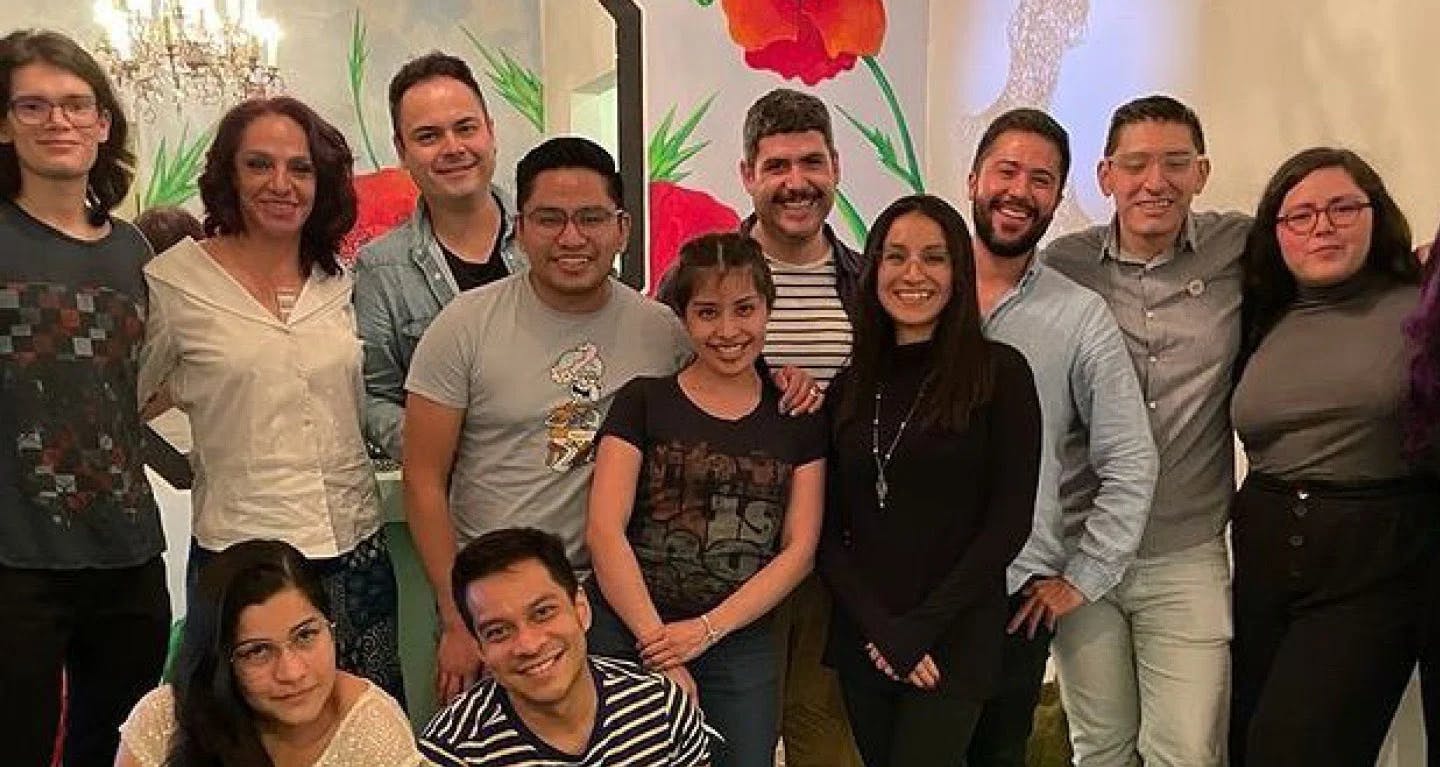Beyond PRIDE: How Casa Frida in Mexico City Shelters Vulnerable LGBTQ+ Youth but Provides Remote Year Participants with a Life Changing Experience
12. Nov. 2021
Since the beginning, Remote Year has considered Mexico City one of our most primary destinations. One of the reasons is due to Omar, our City Experience Manager who thoughtfully curates local activities to help Remotes get an authentic feel of the city.
As part of the LGBTQ+ community, Omar makes sure to provide experiences that support diversity and inclusion. One way he does this is by taking remotes to Casa Frida, a shelter for the LGBTQ+ community of Mexico City. During this experience, remotes get to learn more about the residents, their stories, but also take part in a drag event.
To continue celebrating PRIDE month, we sat down with Casa Frida's Coordinator of Communications, Saúl Olvera, to learn more about the incredible impact this organization is having on the LGBTQ+ community of Mexico City.
Your residents in your community are from all over Latin America, how does this community hear about you?
We reach our community thanks to social media. We opened our doors one year ago on May 13, 2020. Since then we have been publishing on social media that we were open and that people can come to us if they need help.
Our address isn’t written everywhere online or on social media. We only provide an email or phone number so people can reach us through these lines of communication. Once someone contacts us, we do an interview here so we can understand them more and their needs. We have specific rules - only the specific person who is in need and maybe one companion can come to the interview. This is so we can keep everyone safe.
Casa Fridha Shelter in Mexico City
Can you share some stories on what you do to build community and provide support at the shelter when people arrive as well as long-term after they leave Casa Frida?
We have a lot of other activities at our house. We have reading circles, on the roof we have a garden that they can spend time in and take care of, and we recently received a house dog that was lost that everyone helps to take care of. We make a community here with the people who share similarities with their stories but who are also different. Our community is great about checking in on each other and being a support system, naturally.
But before our residents leave us, we ensure they’re able to live properly without us - we check that they have savings for rent and also have access to a network of friends and people for jobs and support.
What is the longest amount of time that people stay at Casa Frida? What does a successful stay look like to you?
On average, we receive new community members for 3 months minimum, but it really depends on the person. In this time, they can restore their security, receive the therapy we provide for free (psychological and psychiatric therapies). We make a life plan with them - we sit with them, we ask them what their studies they’re interested in, their goals, their skills - what they want to be doing with their life. This gives us a way to figure out how to best support them. We try to make sure community members have jobs ready for them when they leave Casa Frida.
As for a success story, we had one 56 year old transgender woman that came to us for 8 months with a lot of trauma. Initially she had come to Mexico City to become a dancer in her twenties, having left her family who were against who she was. When she arrived to Casa Frida, we learned she had actually been assaulted. After 8 months, her sister was able to come to pick her up and help her return home. We have beautiful stories like these about healing and a return to family.
What kind of tools and resources do you give residents to get a job and support themselves long term?
We provide them with computers to encourage them to look for a job or continue their studies. We also provide residents with a phone number for potential employers and act as their reference when it comes time to interview for the job. We want to make sure our residents find a safe employer, so we work with each potential employer to learn more about the vacancy - if the job provides a good salary and if they are an open and safe place.
Casa Frida Shelter in Mexico City
What do you need as an organization? How can Remote Year and our community support you long-term?
We are always in need of three types of donations to provide - 1. Everyday food or supplies 2. Workshops or activities to teach residents different skills, 3. Financial funds - as an organization, we have to pay for rent, the salaries of our staff and therapists, and buy all the supplies we need to keep providing support to our residents.
To close...
Remote Year is proud to be partnering with Casa Frida in Mexico City and we cannot wait to see the impact that this organization makes on the LGBTQ+ community in not only Mexico City, but Latin America as a whole.
We invite you to check out their website, social media, or make a donation here to further support Casa Frida.
